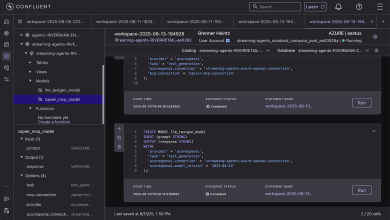Korea University Medicine Deploys Mission-Critical Wireless Infrastructure for Smart Hospital Innovation
Moving Beyond an Outdated Wireless Network That Suffered from Dead Zones, Slow Speeds, and Overload from IoT Devices

Alcatel-Lucent Enterprise, a leading provider of secure networking and communication solutions enabling organisations and industries to accelerate their operational efficiencies and competitiveness, has successfully completed a major wireless network transformation for Korea University Medicine, one of South Korea’s most prestigious medical institutions.
The comprehensive project deployed mission-critical wireless infrastructure across their three hospital campuses in the Seoul Metropolitan area, to enable next-generation digital healthcare services while laying the foundation for smart hospital innovation.
Korea University Medicine was struggling with an outdated wireless network that suffered from dead zones, slow speeds for medical equipment, and overload from growing IoT device usage, hampering healthcare operations. Solving this required a resilient, high-performance solution from ALE and BIN Solutions, combining OmniSwitch® switches with OmniAccess® Stellar access points, all centrally managed through OmniVista® with full redundancy.
This distributed, controller-less architecture eliminates the traditional limitations of centraliSed wireless systems while providing the scalability and reliability required for healthcare environments, delivering approximately 20% improvement in operational productivity. ALE’s solution included a dedicated Wireless Intrusion Prevention System (WIPS) to further strengthen network security beyond standard capabilities, providing enhanced protection for sensitive patient data in compliance with healthcare data privacy standards.
“The healthcare industry demands unwavering network reliability, and Korea University Medicine’s three-campus deployment showcases how our OmniAccess® Stellar WLAN solution’s controller-less architecture delivers mission-critical wireless services that healthcare professionals can depend on,” said Chunshik Shin, Country Business Leader for South Korea, Alcatel-Lucent Enterprise. “By addressing their specific challenges with dead zones and network overload, we’ve enabled them to focus on what matters most—providing exceptional patient care.”
Korea University Medicine Reaps the Benefits
The comprehensive year-long transformation, which began in February 2024 and concluded in February 2025, delivered multiple benefits across Korea University Medicine’s operations:
- Improved performance for mission-critical service excellence: The OmniAccess® Stellar WLAN solution’s distributed architecture ensures mission-critical wireless service reliability throughout all three hospital campuses, supporting the demanding requirements of modern healthcare technology and IoT medical devices. The new infrastructure delivers over 50% faster data processing speed for medical data transmission, including critical systems like Picture Archiving and Communications Systems (PACS), compared to existing solutions.
- Significant cost savings and enhanced operational efficiency: The controller-less architecture eliminates the need for separate scanning antennas for Internet of Medical Things (IoMT) devices, reducing IoMT deployment costs by an estimated 50%. The enhanced network performance eliminated unproductive downtime for medical staff, allowing them to focus more on delivering exceptional patient care, as well as resulting in substantial operational cost savings.
- Superior user experience for both medical staff and patients: Smart healthcare services now operate seamlessly through reliable, high-performance connectivity as well as seamless wireless roaming. This enables staff to move freely with connected devices while maintaining access to critical patient information and communication systems. The integration of IoMT devices also reduced nurse workloads by enabling automated patient monitoring and real-time data collection.
The solution supports future smart hospital initiatives through Real-Time Location Systems (RTLS) integration, helping Korea University Medicine staff track medical equipment and optimise resources. The new ALE wireless infrastructure positions the university to deliver enhanced healthcare services while advancing digital transformation for better patient outcomes.
“Our partnership with ALE and BIN Solutions has transformed our wireless infrastructure from a limiting factor into an enabler of innovation. The superior performance of the new network has significantly improved our operational efficiency and enabled us to deploy advanced medical technologies that were previously constrained by our network limitations,” noted Yoon Ju Sung, Head of Digital Transformation, Medical Intelligence & Data Hub, Korea University Medicine




